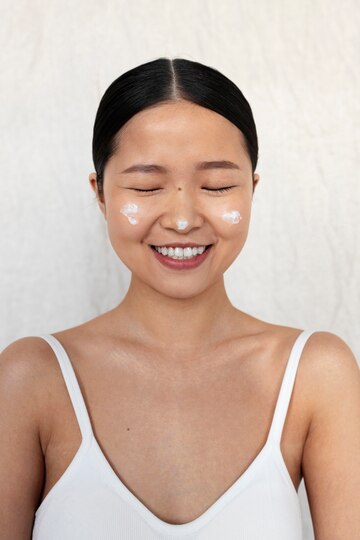Skin Supplements for Better Skin


The skin, our body's largest organ, plays a crucial role in protecting internal systems, regulating temperature, and contributing to sensory experiences. Dr. Emily Roberts, a dermatologist, emphasises, "Skin health goes beyond mere aesthetics; it's integral to our overall well-being." In recent years, the use of dietary supplements for skin enhancement has gained popularity. These supplements range from vitamins to herbal extracts, each claiming various benefits for skin health.
However, the surge in supplement use necessitates a critical analysis of their efficacy and safety. Dr. Alan Greene, a clinical nutritionist, advises, "While supplements can benefit skin health, they should never replace a balanced diet and good skincare routine." It's vital to consult healthcare professionals before incorporating any new supplements into one's regimen, as they can provide tailored advice based on individual health needs.
The best skin supplements for better skin typically include a variety of vitamins, minerals, essential fatty acids, and other nutrients that are known to support skin health. It's important to remember that while supplements can be beneficial, they should be part of a holistic approach to skin care that includes a balanced diet, proper hydration, and good skincare practices. Additionally, it's essential to consult with a healthcare provider before starting any new supplement regimen, especially if you have specific skin concerns or are taking other medications. Here are some of the most recommended supplements for skin health:
It's worth noting that the effectiveness of these supplements can vary from person to person, and not all supplements are suitable for everyone. The best approach is to tailor your supplement regimen to your specific skin needs and health conditions, in consultation with a healthcare provider.

The skin consists of three primary layers: the epidermis, dermis, and hypodermis. Each layer has unique functions, from protecting against pathogens to housing nerve endings and sweat glands. "The skin is a complex organ that demands a balanced approach to maintain its health," states dermatologist Dr. Laura Kim.
Skin issues, such as acne, eczema, and premature ageing, can arise from various factors including genetics, environmental stressors, and lifestyle choices. Dr. Roberts notes, "Understanding the underlying causes of skin problems is essential in selecting appropriate treatments and supplements."
Nutrition significantly impacts skin health. Dr. Greene explains, "A nutrient-rich diet provides the necessary building blocks for healthy skin." This fact underpins the growing interest in skin supplements, which are believed to provide additional nutritional benefits.
Vitamins such as C, E, A, and D are popular in skin care for their antioxidant and healing properties. "Vitamin C, for instance, is pivotal in collagen synthesis and photoprotection," explains Dr. Roberts.
Minerals like Zinc and Selenium also play a vital role. Zinc is known for its wound healing and anti-inflammatory properties, while Selenium aids in protecting the skin from UV damage.
Omega-3 and Omega-6 fatty acids are crucial in maintaining the skin's lipid barrier, thus enhancing hydration and elasticity. Dr. Kim remarks, "Adequate intake of these fatty acids is essential for skin integrity and function."
Herbal supplements such as Green tea extract and Resveratrol are touted for their anti-aging and skin-protecting properties. "These antioxidants help combat oxidative stress, a key factor in ageing," says Dr. Greene.
Emerging research suggests probiotics play a role in skin health by influencing gut-skin axis. Dr. Kim adds, "Probiotics may offer benefits in inflammatory skin conditions."
There is a growing body of research examining the impact of supplements on skin health. Clinical trials have shown positive outcomes in certain areas, such as the use of Omega-3 fatty acids for psoriasis.
Studies indicate that supplements like Zinc and Vitamin A can be effective in managing acne and eczema. However, Dr. Roberts cautions, "Not all supplements are equally effective for every skin condition."
Despite promising results, there are limitations and gaps in current research. Dr. Greene highlights, "Many studies are small-scale or lack long-term analysis, necessitating cautious interpretation of their findings."
This exploration underscores the complexity of skin health and the nuanced role of supplements. While they hold promise, understanding their limitations and consulting healthcare professionals for personalised advice is paramount.
When selecting skin supplements, it's crucial to consider individual factors such as skin type and specific dermatological issues. Dr. Emily Roberts advises, “For acne-prone skin, Zinc supplements may be beneficial, whereas those with dry skin might benefit more from Omega-3 fatty acids.” Selecting supplements that align with your specific skin needs is essential.
The quality and purity of supplements cannot be overstated. Dr. Alan Greene warns, “Low-quality supplements may contain harmful additives or not provide the claimed benefits.” It's imperative to choose supplements from reputable sources that adhere to stringent quality controls.
Interactions with other medications are another critical consideration. As Dr. Laura Kim explains, “Some supplements can interfere with medications, so it's important to discuss any new supplement with a healthcare provider.” This ensures safe and effective use of skin supplements in conjunction with other treatments.
Lifestyle choices profoundly impact skin health. Dr. Roberts emphasises, “A balanced diet, adequate hydration, and sufficient sleep are foundational for maintaining skin health.” These elements work synergistically with supplements to enhance skin quality.
Foods rich in antioxidants, vitamins, and minerals naturally improve skin health. Dr. Greene suggests, “Incorporate foods like berries, nuts, and leafy greens, which are high in skin-beneficial nutrients.” A nutrient-dense diet supports the skin from the inside out.
Hydration plays a vital role in skin health. “Adequate water intake is essential for maintaining the skin’s elasticity and moisture balance,” explains Dr. Kim. This highlights the importance of considering overall lifestyle habits alongside supplement use.
While skin supplements can be beneficial, they are not without risks. Overuse or misuse can lead to adverse effects. “High doses of certain vitamins can cause toxicity and other harmful effects,” warns Dr. Roberts. It’s important to adhere to recommended dosages and be aware of potential side effects.
Consulting with healthcare providers before starting any supplement regimen is crucial. As Dr. Greene notes, “A healthcare provider can offer guidance on the safe and effective use of supplements based on individual health profiles.”
This article has explored various aspects of skin supplements and their role in enhancing dermatological health. Key points include understanding skin anatomy and common problems, the types of supplements available, and their scientific backing. Additionally, the importance of choosing the right supplements, considering lifestyle factors, and being aware of potential risks were discussed.
The overarching theme is the encouragement of a holistic approach to skin health. This includes not just the judicious use of supplements but also a balanced diet, adequate hydration, good sleep, and regular consultations with healthcare providers. Adopting such a comprehensive approach ensures the maintenance and enhancement of skin health, reflecting the complex and multifaceted nature of dermatological care.








Plus get the inside scoop on our latest content and updates in our monthly newsletter.